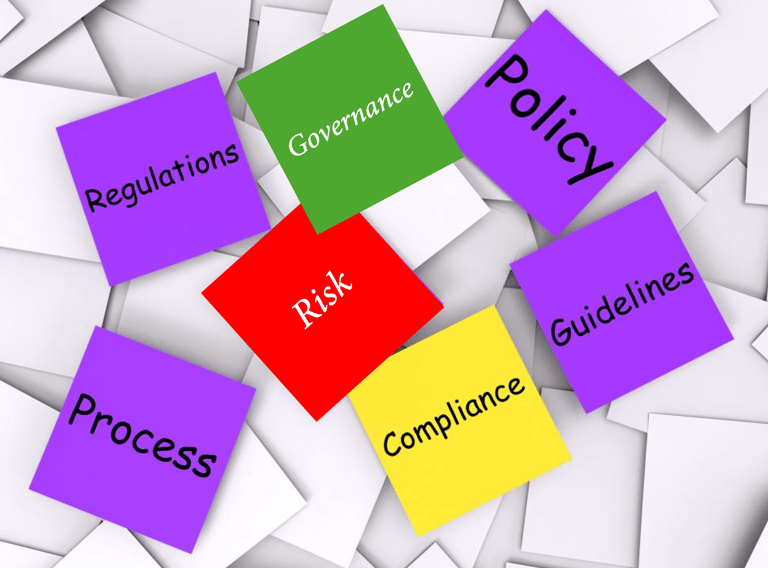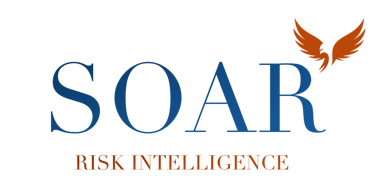GO BEYOND RISK MANAGEMENT
Research
Risk intelligence is a critical concept in today's increasingly complex business environment. It encompasses the ability to understand, analyze, and manage risks more quickly, efficiently, and effectively. As organizations face growing challenges that could threaten their success, the ability to proactively identify and mitigate potential risks, as well as seize opportunities appropriately, is essential.


Artificial Intelligence (AI) is rapidly transforming risk management across various industries. With its ability to process vast amounts of data, AI enhances the capacity to identify, assess, and mitigate risks more effectively. The benefits of implementing AI-driven risk management solutions are considerable. Organisations would improve forecasting accuracy, optimise decision-making, and refine customer data segmentation, facilitating the integration of risk management with the organisation’s strategy. As a result, early adopters of AI in risk management tend to see increased efficiency and productivity and hence significant cost reductions.




Amid the challenges of today’s economy, financial institutions and businesses are exposed to a broad spectrum of risks, including market volatility, credit defaults, liquidity challenges, strategic risks, reputational threats, and regulatory changes, among others. The ability to anticipate, assess, and manage these risks has become a critical aspect of financial strategy. This is where financial risk intelligence comes in a disciplined approach that combines data analytics, technology, and expert insights to make informed decisions and safeguard financial stability.


Operational risk is a pivotal concern in the manufacturing sector, with the potential to profoundly influence a company’s overall success, profitability, and market position. In an industry where precision, timing, and safety are paramount, the ability to identify, assess, and mitigate operational risks is not just a best practice—it’s a fundamental necessity. Failure to adequately prepare for and respond to operational risks can lead to catastrophic financial losses, severe disruptions, and long-lasting damage to a company’s reputation.


Artificial Intelligence (AI) is transforming liquidity risk management by providing real-time data analysis, predictive modelling, and automation, enabling organisations to better anticipate cash shortfalls, cash and investments optimisation, streamline operations, and respond swiftly to market changes, thereby enhancing stability and resilience in a volatile environment.


Chinese-built cars have become increasingly prominent in Mexico, accounting for approximately 20% of new car sales in 2023 and gaining more demand in 2024. This trend signals not only the growing presence of Chinese automakers but also the strategic implications for both Mexico and the United States. However, challenges loom on the horizon as geopolitical tensions and trade regulations shape the landscape.


The insurance and risk management landscape is undergoing a significant transformation, driven by the integration of artificial intelligence (AI) technologies. This evolution not only enhances operational efficiencies but also addresses emerging risks while presenting new challenges. As insurers and customers navigate this revolution, understanding the implications of AI in insurance becomes crucial.


The insurance and risk management landscape is undergoing a significant transformation, driven by the integration of artificial intelligence (AI) technologies. This evolution not only enhances operational efficiencies but also addresses emerging risks while presenting new challenges. As insurers and customers navigate this revolution, understanding the implications of AI in insurance becomes crucial.


Risk economics is an essential discipline that examines the impact of risk and uncertainty on decision-making across various sectors, including finance, health care, and environmental policy. It distinguishes between risk, where probabilities of outcomes are known, and uncertainty, where such probabilities are indeterminate, highlighting the complexities faced by individuals, businesses, and policymakers in navigating today's unpredictable economic landscape. Understanding and managing these risks are crucial for fostering resilience and promoting sustainable growth, as they influence investment strategies, consumer behavior, and policy formulation.


The landscape of Governance, Risk, and Compliance (GRC) is evolving at an unprecedented pace, driven by rapid technological advancements, changing regulatory requirements, and the growing complexity of global business operations. As organizations navigate this intricate environment, it becomes essential to implement robust GRC frameworks that effectively integrate governance practices, manage risks, and maintain compliance with ever-changing regulations. By 2025, we can expect significant transformations within the GRC domain, influenced by emerging trends such as artificial intelligence, enhanced data privacy regulations, and the imperative to address environmental, social, and governance (ESG) factors.
